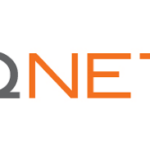Introduction
QNet has been the subject of widespread scrutiny due to its business practices, financial transactions, and alleged regulatory violations. With an international presence and a business model that has sparked controversy, QNet has faced accusations ranging from deceptive marketing tactics to allegations of fraud. The company’s complex corporate structure, multi-level marketing strategy, and reported connections to high-risk financial activities raise significant concerns about its legitimacy and compliance with anti-money laundering (AML) regulations. In this report, we delve into the business dealings, legal issues, and reputational risks associated with QNet.

Business Relationships and Corporate Associations
QNet operates across multiple countries, with a web of associated businesses and affiliates that contribute to its expansive reach. Its operations are often linked to multi-level marketing schemes, where recruits are incentivized to enroll others rather than focus on actual product sales. The company’s affiliations with other network marketing enterprises, financial intermediaries, and offshore business entities add layers of complexity to its operations.
Financial transactions involving QNet often span across jurisdictions, making it difficult to track the flow of funds. Reports suggest that the company has engaged in partnerships with financial firms that have previously been flagged for compliance violations. This raises red flags regarding money laundering risks and the potential misuse of financial networks for illicit activities.
Undisclosed Business Relationships and Associations
A key concern with QNet is the lack of transparency in its ownership structures and business affiliations. Investigations indicate that the company may have undisclosed relationships with individuals and entities that have faced legal action in the past. Such undisclosed affiliations increase the risk of regulatory scrutiny and potential liability for business partners.
Moreover, QNet’s operations in regions with lax financial oversight contribute to concerns about hidden financial dealings. The company has been linked to offshore entities that provide limited transparency, making it difficult for regulators to assess its compliance with AML standards.
Scam Reports, Consumer Complaints, and Negative Feedback
QNet has been repeatedly accused of engaging in deceptive practices that mislead consumers and investors. Many individuals have reported financial losses after being drawn into the company’s recruitment-based business model. Complaints often highlight misleading income claims, high-pressure sales tactics, and difficulties in obtaining refunds. Several regulatory agencies have issued warnings against QNet, advising consumers to exercise caution before engaging with the company.
Despite these allegations, QNet continues to operate, often rebranding or modifying its marketing strategies to evade regulatory action. Negative feedback from former associates and customers further tarnishes the company’s reputation, making it a high-risk entity for investors and financial institutions.

Red Flags and Financial Risk Indicators
Analysis of QNet’s financial activities reveals several high-risk patterns commonly associated with fraudulent schemes. The company’s reliance on a multi-level marketing structure creates financial instability, as revenue generation is heavily dependent on continuous recruitment rather than actual product sales. This model has drawn comparisons to pyramid schemes, which are unsustainable in the long run.
Additionally, QNet’s use of offshore accounts and cross-border transactions raises concerns about potential money laundering activities. Financial regulators have flagged similar business models as high-risk due to their susceptibility to financial crimes. The company’s history of legal battles and fines further supports the argument that it operates in a manner that contradicts ethical business practices.
Allegations, Lawsuits, and Regulatory Concerns
Over the years, QNet has faced multiple lawsuits and regulatory actions in various countries. Allegations against the company include financial fraud, illegal business operations, and violations of consumer protection laws. Legal proceedings have revealed instances where individuals suffered financial losses due to misleading representations made by QNet representatives.
Regulatory bodies in several jurisdictions have scrutinized QNet’s activities, leading to legal restrictions and financial penalties. Some governments have banned its operations altogether, citing concerns about public harm and financial misconduct. Despite these actions, QNet continues to find ways to circumvent regulatory restrictions, often by rebranding or restructuring its business operations.
Reputational Risk and Anti-Money Laundering Considerations
Financial institutions and investors must carefully assess the reputational risks associated with engaging with QNet. The company’s history of legal challenges, negative consumer experiences, and regulatory scrutiny makes it a high-risk entity. Banks and payment processors dealing with QNet-related transactions may face increased compliance requirements and potential legal liabilities.
From an anti-money laundering perspective, QNet’s business model presents multiple risk factors. The company’s financial transactions often involve multiple layers, making it difficult to trace the source and destination of funds. Additionally, the use of high-risk jurisdictions for financial operations increases the likelihood of regulatory intervention.

Risk mitigation strategies should include thorough due diligence, continuous transaction monitoring, and collaboration with regulatory authorities to detect and prevent financial crimes. Businesses considering partnerships with QNet or its affiliates must exercise extreme caution to avoid exposure to financial and reputational damage.
Financial Networks and Offshore Holdings
QNet’s financial structure includes offshore holdings that provide limited visibility into its true ownership and control. Offshore entities are often used to facilitate tax evasion, money laundering, and other financial crimes. The company’s connections to such structures raise questions about its financial integrity and compliance with international regulations.
Authorities have identified cases where funds linked to QNet have moved through multiple financial channels before reaching their final destination. Such financial behavior aligns with tactics used to obscure illicit transactions. The involvement of third-party intermediaries further complicates the ability to track and assess financial risk.
Patterns of High-Risk Transactions
QNet’s transactional behavior exhibits patterns commonly associated with high-risk financial activities. The company has been linked to cases where large sums of money have been transferred through shell companies, creating a complex web of financial movements. The use of cryptocurrency transactions in some instances adds another layer of anonymity, making regulatory oversight even more challenging.
The presence of irregular financial flows and sudden spikes in transactions suggests possible attempts to evade detection. These patterns align with known indicators of financial misconduct and require heightened scrutiny from financial institutions and regulators.
Impact on Investors and Business Partners
Investors and business partners must carefully evaluate the risks associated with QNet before committing to financial engagements. The company’s track record of legal disputes and regulatory actions makes it a liability for entities seeking long-term stability. Engaging with high-risk businesses can lead to financial losses, reputational damage, and legal consequences.
Financial institutions processing transactions for QNet must implement strict compliance measures to mitigate potential risks. Failure to conduct proper due diligence could result in regulatory fines and reputational harm. Investors considering partnerships with QNet should seek expert legal and financial guidance to avoid exposure to fraudulent activities.
conclusion
Based on our investigation, QNet presents significant risks in terms of financial transparency, regulatory compliance, and reputational integrity. The company’s business model raises serious concerns, particularly due to its multi-level marketing approach, undisclosed affiliations, and history of legal issues. While QNet maintains its operations through strategic branding and jurisdictional maneuvering, its financial practices remain highly questionable.
Entities considering associations with QNet must prioritize comprehensive risk assessments and implement rigorous compliance measures. The company’s reputation and legal history suggest that engagement with its business operations carries substantial risks. Financial institutions, investors, and regulators must remain vigilant to prevent exposure to potential financial crimes and reputational fallout.
In conclusion, the available evidence strongly indicates that QNet operates within a high-risk framework that necessitates thorough scrutiny. Regulatory authorities and financial entities must work together to ensure that businesses engaged in similar practices are held accountable. Stakeholders must proceed with caution to avoid financial and legal entanglements associated with QNet’s operations.







